Find Help
More Items From Ergsy search
-

Pelvic Girdle Pain Advice Class
Relevance: 100%
-

Mat and gym ball exercises with pregnancy related Pelvic Girdle Pain
Relevance: 87%
-
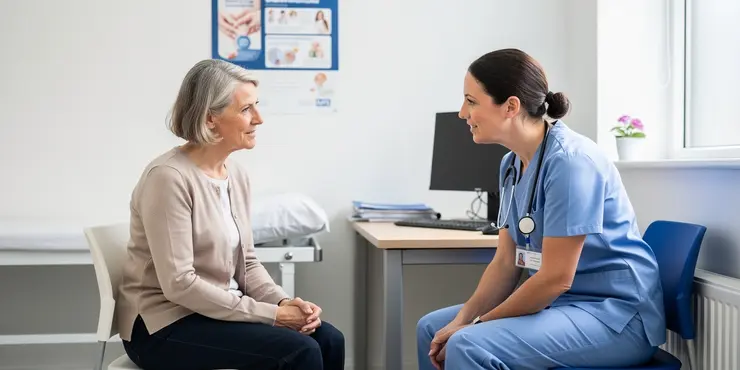
Pelvic health: prolapse
Relevance: 42%
-
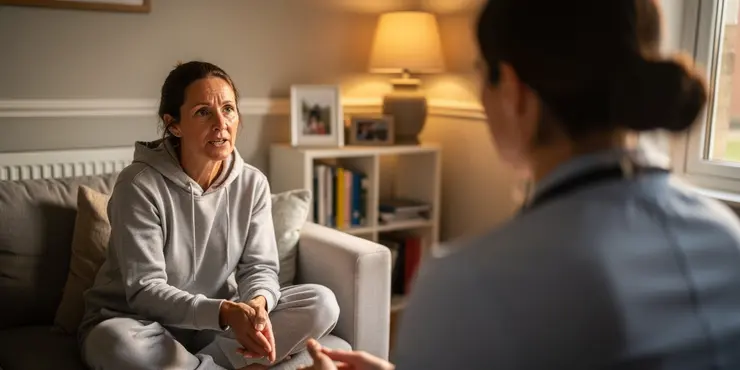
Pelvic health: prolapse
Relevance: 40%
-

Pelvic Floor Exercises - Using Your Pelvic Floor to Calm Down Your Bladder
Relevance: 39%
-

Pelvic Floor Exercises - Using Your Pelvic Floor to Calm Down Your Bladder
Relevance: 39%
-
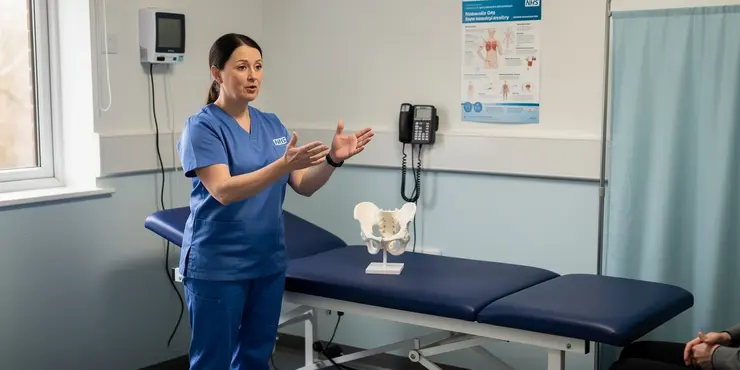
How to do pelvic floor exercises | NHS
Relevance: 38%
-
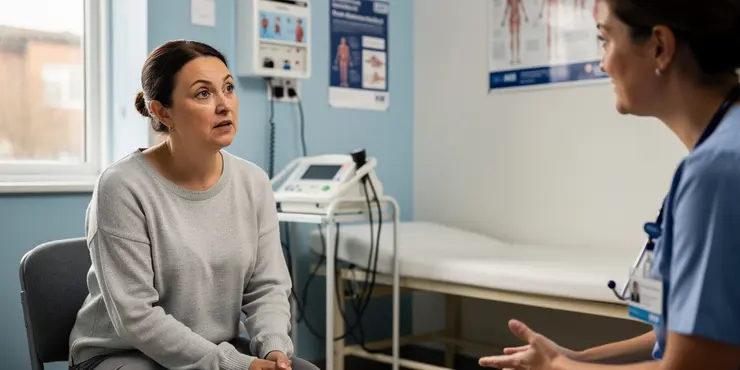
BSL Pelvic inflammatory disease (PID)
Relevance: 38%
-
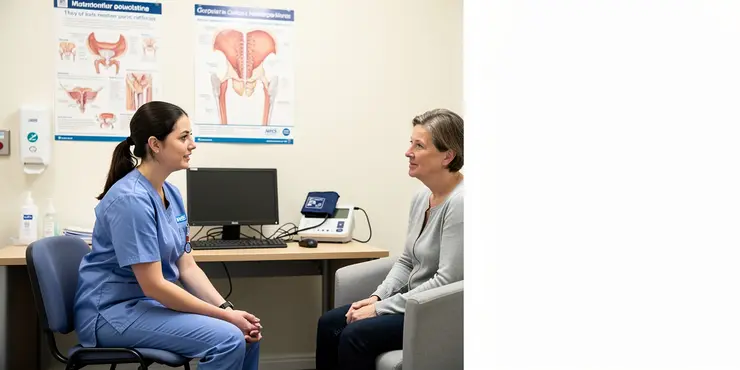
Your pelvic health matters: insights from NHS clinicians
Relevance: 38%
-
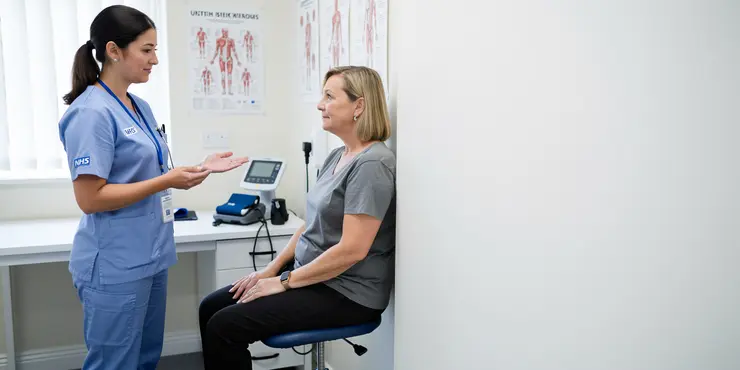
The Pelvic Floor Muscles - Developing an Exercise Programme
Relevance: 37%
-
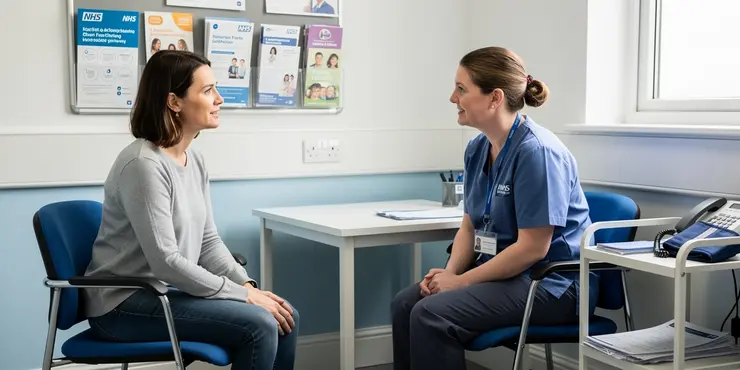
Understanding Your Sexual Health - Pelvic Inflammatory Disease
Relevance: 35%
-
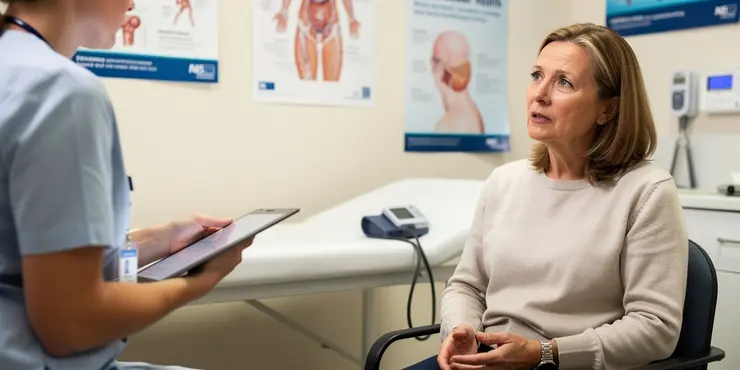
Pelvic health: Urge Incontinence
Relevance: 34%
-

Pelvic health: stress urinary incontinence
Relevance: 34%
-

Period pain (dysmenorrhoea) - BSL
Relevance: 31%
-
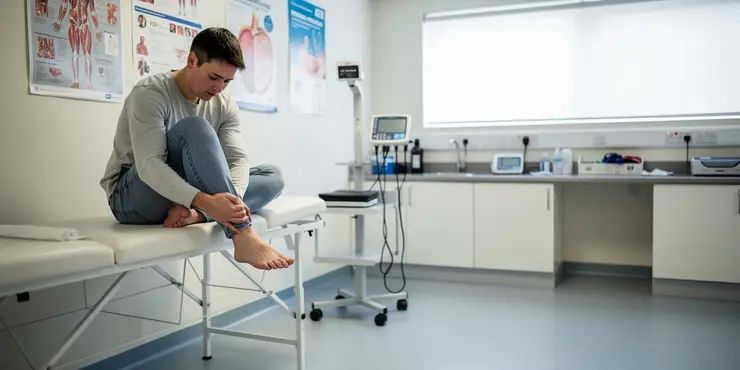
Foot Pain
Relevance: 26%
-

Is impetigo painful?
Relevance: 26%
-
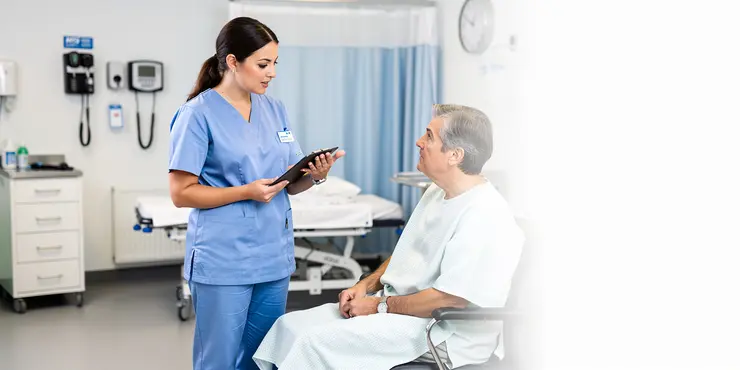
Is a facelift painful?
Relevance: 26%
-
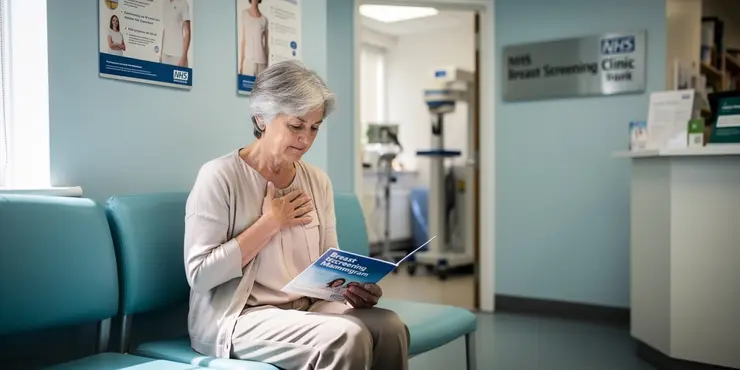
Is a mammogram painful?
Relevance: 26%
-
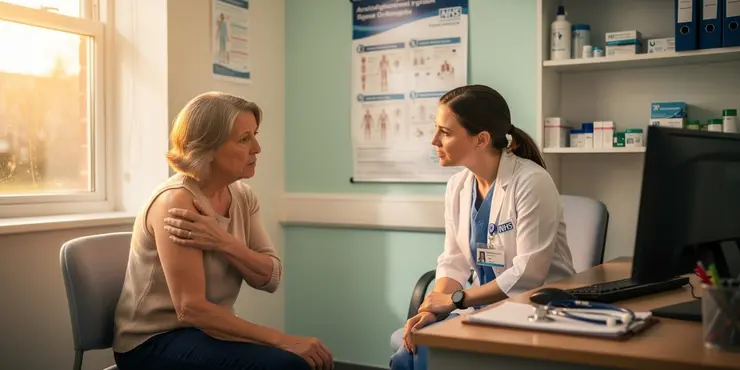
Shoulder pain | NHS
Relevance: 25%
-

Shoulder pain | NHS
Relevance: 25%
-
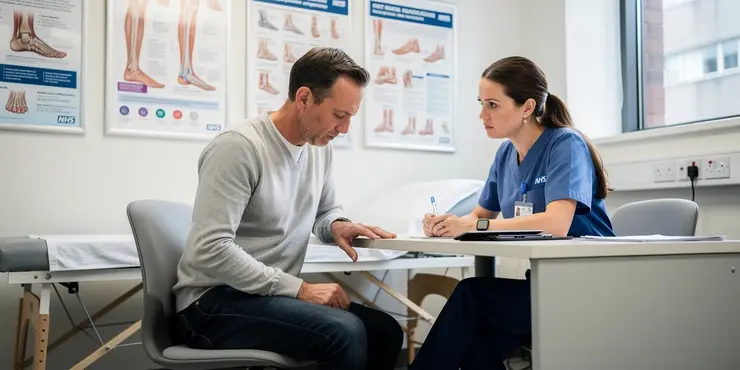
Heel pain | NHS
Relevance: 25%
-
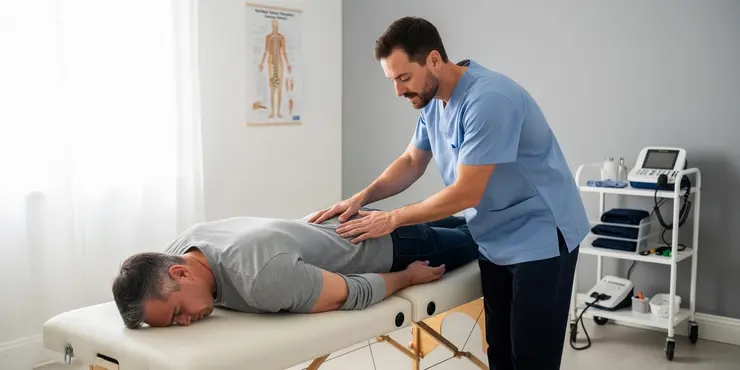
Are chiropractic treatments painful?
Relevance: 24%
-

Mechanical Lower Back Pain
Relevance: 23%
-

Will I feel pain during the procedure?
Relevance: 23%
-

Stomach ache and abdominal pain
Relevance: 23%
-
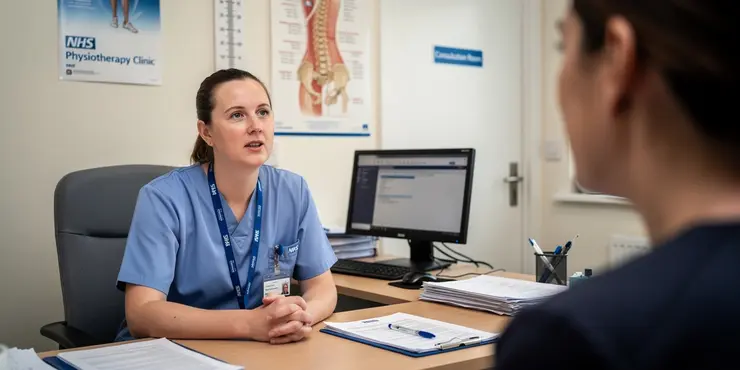
Advice on neck pain and whiplash
Relevance: 23%
-
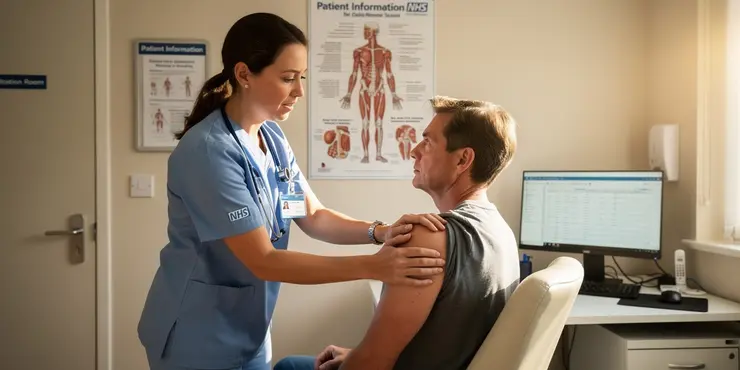
Shoulder subacromial shoulder pain
Relevance: 23%
-

Can lifestyle changes help manage pain and fever during pregnancy?
Relevance: 23%
-
Shoulder pain | NHS
Relevance: 23%
-
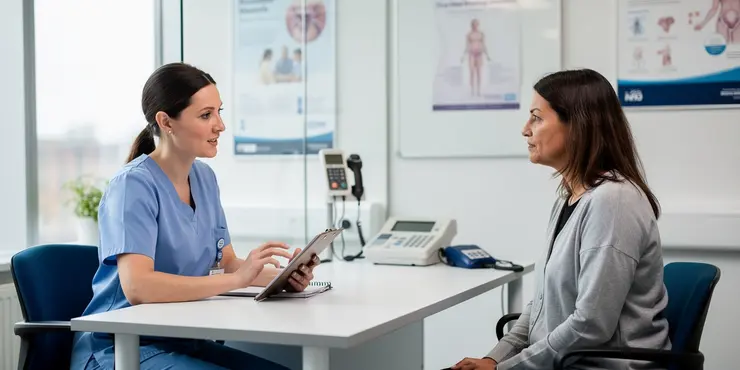
Is the womb lining test painful?
Relevance: 23%
-
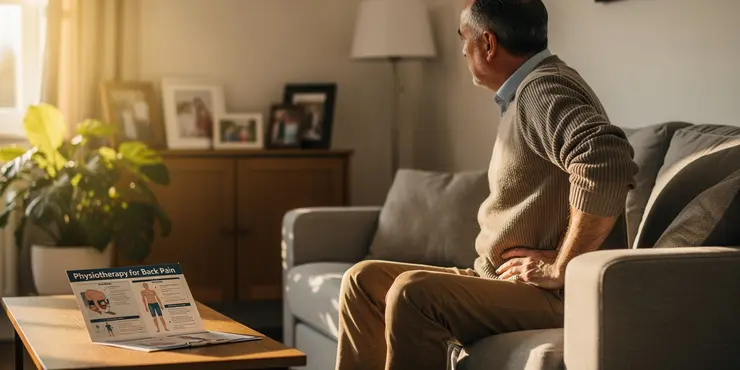
How to treat back pain | NHS
Relevance: 22%
-

Pilates for back pain: Standing on one leg | NHS
Relevance: 22%
-

How to deal with period pain | NHS
Relevance: 22%
-

How to deal with period pain | NHS
Relevance: 22%
-

How to deal with period pain | NHS
Relevance: 22%
-

How to deal with period pain | NHS
Relevance: 22%
-
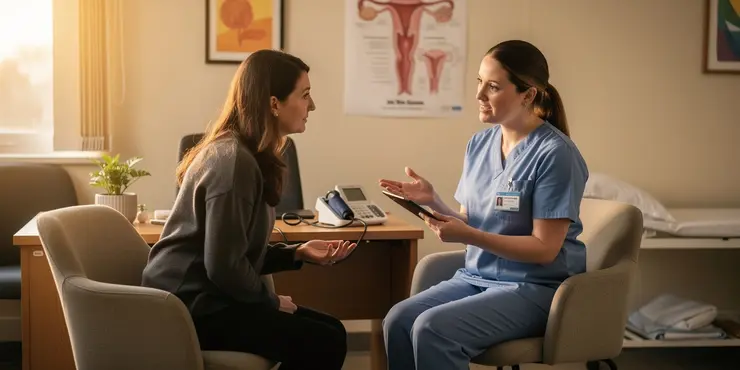
Is a womb lining test painful?
Relevance: 22%
-

Greater trochanteric pain syndrome
Relevance: 22%
-

Can I use Ibuprofen for menstrual pain?
Relevance: 22%
-
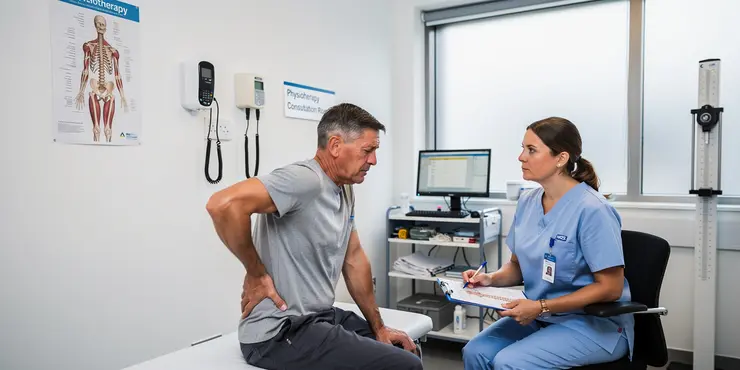
MSK Lower Back Pain information video
Relevance: 21%
Pelvic Girdle Pain Advice Class
Introduction to Pelvic Girdle Pain (PGP)
Pelvic Girdle Pain (PGP) is a common condition that affects many individuals, particularly during pregnancy. It encompasses pain that arises in the joints of the pelvis, which can significantly impact everyday activities and quality of life. Early diagnosis and appropriate management are crucial to alleviate symptoms and prevent long-term complications. In the UK, specific advice classes are available to provide guidance and support to those suffering from PGP.What to Expect in a PGP Advice Class
PGP advice classes typically offer comprehensive information on the nature of pelvic pain, its causes, and strategies to manage and reduce symptoms. Sessions often include:- Educational resources about the anatomy of the pelvis and mechanisms of pain.
- Practical advice on posture and ergonomics to alleviate discomfort.
- Exercise routines tailored to strengthen the pelvic area and enhance mobility.
- Guidance on using supportive belts or braces.
- Relaxation techniques to help manage pain and stress.
Benefits of Attending a PGP Class
Attending a PGP advice class offers numerous benefits, including:- Improved understanding of PGP and its management.
- Access to professional support and peer networks.
- Development of personalized exercise regimens to enhance strength and flexibility.
- Reduction in pain and discomfort through targeted interventions.
- Empowerment to make informed decisions about one’s health and well-being.
How to Access PGP Advice Classes in the UK
In the United Kingdom, PGP advice classes can be accessed through various channels:- Referral by a GP or midwife who recognizes the need for specialized support.
- Local NHS services, which may offer classes as part of maternity care or physiotherapy programs.
- Private clinics and physiotherapy centers, which provide tailored sessions for PGP management.
- Online resources and virtual classes, particularly useful during situations requiring social distancing.
Conclusion
Pelvic Girdle Pain can be a challenging condition, but with the right guidance and support, it is manageable. PGP advice classes play a vital role in educating individuals and equipping them with the tools necessary to alleviate pain and improve their quality of life. If you are experiencing PGP, consider attending a local advice class to explore effective management strategies and connect with a supportive community.Pelvic Girdle Pain Advice Class
What is Pelvic Girdle Pain (PGP)?
Pelvic Girdle Pain, or PGP, is pain you can feel in the pelvis. It often happens during pregnancy. This pain can make everyday activities hard, like walking or sitting. It is important to get help early so it doesn't get worse. In the UK, there are special classes to help people who have PGP.What Happens in a PGP Advice Class?
In a PGP class, you will learn a lot about pelvic pain. You will learn:- Why your pelvis hurts and how it works.
- How to stand and move to feel better.
- Exercises to make your pelvis stronger.
- How to use belts or braces for support.
- Ways to relax and feel less pain and stress.
Why Go to a PGP Class?
There are many good reasons to go to a PGP class:- You will understand PGP better and how to manage it.
- You can talk to experts and meet others with PGP.
- You learn exercises that help your body get strong and move better.
- You will feel less pain because of the exercises and advice you get.
- You will learn how to make choices to help your body and health.
How to Find a PGP Class in the UK
In the UK, there are different ways to find a PGP class:- A doctor or midwife might suggest going to a class.
- The NHS might have classes as part of pregnancy or therapy care.
- Private clinics and physiotherapy centers also offer PGP classes.
- There are online classes you can do from home.
Conclusion
Pelvic Girdle Pain can be hard, but with help, you can manage it. PGP classes teach you how to feel better and get support. If you have PGP, think about going to a class to learn and meet others who can help.Frequently Asked Questions
What is pelvic girdle pain (PGP)?
Pelvic girdle pain (PGP) is discomfort or pain that occurs in the pelvic region, usually during pregnancy. It can affect mobility and quality of life.
What are the symptoms of PGP?
Symptoms can include pain in the pubic bone, lower back, hips, groin, or thighs. You might also experience clicking or grinding sensations in the pelvic area.
What causes PGP?
PGP is caused by the relaxation and stretching of pelvic joints and ligaments due to hormonal changes during pregnancy. Other factors such as previous pelvic injury can also contribute.
How common is PGP among pregnant women?
PGP affects approximately 1 in 5 pregnant women in the UK. It can occur at any stage of pregnancy, but is more common during the later stages.
How is PGP diagnosed?
PGP is diagnosed through clinical assessment by a healthcare professional, who will consider your symptoms, medical history, and perform a physical examination.
Can PGP affect my delivery?
PGP is unlikely to affect your delivery, but it is important to discuss your symptoms with your midwife or obstetrician to ensure a comfortable birthing plan.
What treatments are available for PGP?
Treatments can include physiotherapy, pelvic support belts, pain relief medications, and lifestyle modifications such as exercise and ergonomic adjustments.
Can physiotherapy help with PGP?
Yes, physiotherapy can be very effective in managing PGP. A physiotherapist can provide tailored exercises and advice to help strengthen your pelvic muscles and reduce pain.
Are there any exercises I should avoid if I have PGP?
Avoid activities that involve heavy lifting, twisting movements, or one-legged exercises. Consult your physiotherapist for a list of safe exercises.
Can I continue to work with PGP?
Many women can continue to work with PGP, but it may be necessary to modify your duties or work environment. Discuss your condition with your employer and healthcare provider.
Is there any way to prevent PGP?
While PGP cannot always be prevented, maintaining a healthy weight, staying active, and using proper lifting techniques can help reduce the risk.
Does PGP go away after childbirth?
In most cases, PGP improves within a few weeks to months after childbirth, but some women may continue to experience symptoms and require ongoing treatment.
Can I experience PGP if I am not pregnant?
Yes, PGP can occur in individuals who are not pregnant due to factors such as previous pelvic injury, arthritis, or other conditions affecting the pelvic area.
Is it safe to take pain relief medications for PGP during pregnancy?
Some pain relief medications are safe during pregnancy, but it is important to consult your healthcare provider before taking any medication.
Where can I find more information or support for managing PGP?
You can find information and support from your midwife, GP, physiotherapist, or local NHS trust. Online resources and support groups can also be helpful.
What is Pelvic Girdle Pain (PGP)?
Pelvic Girdle Pain (PGP) is a type of pain in your lower back or hips. It can make moving or walking hurt.
If you have PGP, you might feel sore when sitting or standing.
You can get help from a doctor or a physiotherapist. They can show you exercises to feel better.
Using a warm pack on your back may also help reduce the pain.
Pelvic girdle pain (PGP) is when you feel pain in the hip area. This pain often happens when you are pregnant. It can make moving around harder and affect how you feel day to day.
What are the signs of PGP?
Here are some signs you might have PGP:
- Pain in your back
- Pain in your hips or bottom
- Pain in your legs
- Feeling stiff when you move
- Pain gets worse when you walk or stand
If you think you have PGP, it can help to:
- See a doctor or nurse
- Write down when and where you feel pain
- Use a heat pack on sore areas
- Ask someone to help with chores
You might feel pain in your lower tummy, back, hips, the front of your legs, or the top of your legs. You could also feel or hear clicking or grinding in your hip area.
It can help to use a pillow between your legs when you sleep or take small breaks to rest during the day.
Why does PGP happen?
PGP happens when the bones and stretchy bands (called ligaments) in your hips get loose and stretch because of changes in your body during pregnancy. Sometimes, if you hurt your hips before, it can also make it worse.
How many pregnant women get PGP?
PGP is a problem that happens to about 1 in 5 pregnant women in the UK. It can happen at any time during pregnancy, but it usually happens more in the later months.
How do doctors know if someone has PGP?
A doctor can find out if you have PGP by talking to you and checking your body. They will ask about your pain and health history. The doctor will also gently look at and feel your body in an exam.
Will PGP change how I have my baby?
PGP probably won't change how your baby is born. But it is important to talk about how you feel with your midwife or doctor. They can help make sure that having your baby is as comfortable as possible.
What can help with PGP?
There are different ways to help with PGP pain. Here are some:
- Exercises: Gentle moves can make you stronger and feel better.
- Massage: Rubbing the sore area can help make the pain less.
- Warm Pads: Putting something warm on the sore spot can feel nice.
It can help to talk to a doctor or a therapist. They know how to help. You can also try using a cushion to sit comfortably or ask someone to help with shopping and chores.
You can try different things to help with the pain. Some people use exercises from a physiotherapist. Others wear special belts to support their hips. Medicine can also help with pain. Making changes in how you move or sit might help too. Exercise and sitting comfortably can make a big difference. Drawing pictures or using apps to remember these tips can also be useful.
Can physiotherapy help with PGP?
Here is a simple guide to answer the question:
What is PGP?
PGP stands for Pelvic Girdle Pain. It is pain in the area around your hips and lower back.
What is physiotherapy?
Physiotherapy is a treatment that helps people move better. It uses exercises and other hands-on techniques.
Can physiotherapy help with PGP?
Yes, physiotherapy can help people who have PGP. It can make the pain less and help you move your body more easily.
Helpful tips:
- Ask a physiotherapist to show you exercises.
- You can use pillows for support when you sit or sleep.
- Try to move gently, not too quickly.
Yes, physiotherapy can really help with PGP. A physiotherapist is someone who gives special exercises and tips to make your pelvic muscles stronger and help with the pain.
If you find reading hard, you can ask someone to read it with you or use a text-to-speech tool.
Which exercises should I not do if I have PGP?
PGP stands for Pelvic Girdle Pain. It's important to be gentle on your body.
Here are some tips:
- Don't do exercises that hurt.
- Avoid activities that make you stretch your legs very wide.
- Don't lift heavy things.
- Walking for a long time can be tiring. Take breaks.
Ask a doctor or physiotherapist for help. They can show you exercises that are safe to do.
Do not do things that need you to lift heavy stuff, twist your body a lot, or stand on one leg to exercise. Ask your physiotherapist for a list of exercises that are safe to do.
Can I still work with PGP?
Many women can still work if they have PGP. PGP is pain in the back or hips. You might need to change how you work or where you work. Talk to your boss and doctor about how you feel.
Can you stop PGP?
PGP is a way to keep emails safe and private.
If you want to stop PGP, a simple way is not to use it. Just use regular email instead.
You can talk to a person who knows a lot about computers for more help. They can show you other ways to keep your emails safe.
Using simple tools or apps can also make it easier. You can find apps that help protect your privacy without using PGP.
PGP cannot always be stopped, but you can do a few things to make it less likely. Keep a healthy weight, stay active, and lift things the right way. These can all help you stay safe.
Will PGP stop after having a baby?
Many people want to know if PGP pain goes away after they have their baby.
PGP is pain in your pelvis area. It usually gets better after childbirth, but not always right away. Sometimes it can take a little time for the pain to go away.
If you still feel pain after having your baby, talk to your doctor or a healthcare provider. They can help you feel better.
It can be helpful to do gentle exercises or see a therapist who can show you how to make your body stronger. They can help your body feel better more quickly.
Most of the time, PGP gets better a few weeks or months after having a baby. But some women might still feel pain and need more help.
Can I have PGP if I am not pregnant?
PGP means pelvic girdle pain. It is a type of pain you feel in your lower back or hips.
You do not need to be pregnant to have PGP. Even people who are not having a baby can feel this pain.
If you have pain, it helps to talk to a doctor or a nurse. They can check why you feel pain and help you feel better.
Here are some things that might help if you have PGP:
- Take a warm bath or shower.
- Use a hot water bottle on your back or hips.
- Try gentle stretching exercises.
- Rest when you need to.
Yes, PGP can happen to people who are not pregnant. This can be because of things like a past injury to the pelvis, arthritis, or other problems in the pelvic area.
Can you take medicine for pain when you have PGP and are pregnant?
Some medicines for pain are safe to take when you are having a baby. But it is very important to talk to your doctor before taking any medicine.
Where can I get help with PGP?
If you want to learn more about PGP, here are some ideas:
- Talk to your doctor or nurse. They can tell you more about it.
- Look for websites that help with PGP. Make sure they are safe and trusted.
- Ask family or friends. They might know good places to find help.
- You can use a calendar to remember what you learn.
- Write things down if that helps you remember.
Remember, it’s okay to ask for help!
You can get help and information from your midwife, GP, physiotherapist, or local NHS trust. You can also find help online or join support groups.
Useful Links
This website offers general information and is not a substitute for professional advice.
Always seek guidance from qualified professionals.
If you have any medical concerns or need urgent help, contact a healthcare professional or emergency services immediately.
Some of this content was generated with AI assistance. We’ve done our best to keep it accurate, helpful, and human-friendly.
- Ergsy carfully checks the information in the videos we provide here.
- Videos shown by Youtube after a video has completed, have NOT been reviewed by ERGSY.
- To view, click the arrow in centre of video.
- Most of the videos you find here will have subtitles and/or closed captions available.
- You may need to turn these on, and choose your preferred language.
- Go to the video you'd like to watch.
- If closed captions (CC) are available, settings will be visible on the bottom right of the video player.
- To turn on Captions, click settings .
- To turn off Captions, click settings again.
More Items From Ergsy search
-

Pelvic Girdle Pain Advice Class
Relevance: 100%
-

Mat and gym ball exercises with pregnancy related Pelvic Girdle Pain
Relevance: 87%
-

Pelvic health: prolapse
Relevance: 42%
-

Pelvic health: prolapse
Relevance: 40%
-

Pelvic Floor Exercises - Using Your Pelvic Floor to Calm Down Your Bladder
Relevance: 39%
-

Pelvic Floor Exercises - Using Your Pelvic Floor to Calm Down Your Bladder
Relevance: 39%
-

How to do pelvic floor exercises | NHS
Relevance: 38%
-

BSL Pelvic inflammatory disease (PID)
Relevance: 38%
-

Your pelvic health matters: insights from NHS clinicians
Relevance: 38%
-

The Pelvic Floor Muscles - Developing an Exercise Programme
Relevance: 37%
-

Understanding Your Sexual Health - Pelvic Inflammatory Disease
Relevance: 35%
-

Pelvic health: Urge Incontinence
Relevance: 34%
-

Pelvic health: stress urinary incontinence
Relevance: 34%
-

Period pain (dysmenorrhoea) - BSL
Relevance: 31%
-

Foot Pain
Relevance: 26%
-

Is impetigo painful?
Relevance: 26%
-

Is a facelift painful?
Relevance: 26%
-

Is a mammogram painful?
Relevance: 26%
-

Shoulder pain | NHS
Relevance: 25%
-

Shoulder pain | NHS
Relevance: 25%
-

Heel pain | NHS
Relevance: 25%
-

Are chiropractic treatments painful?
Relevance: 24%
-

Mechanical Lower Back Pain
Relevance: 23%
-

Will I feel pain during the procedure?
Relevance: 23%
-

Stomach ache and abdominal pain
Relevance: 23%
-

Advice on neck pain and whiplash
Relevance: 23%
-

Shoulder subacromial shoulder pain
Relevance: 23%
-

Can lifestyle changes help manage pain and fever during pregnancy?
Relevance: 23%
-
Shoulder pain | NHS
Relevance: 23%
-

Is the womb lining test painful?
Relevance: 23%
-

How to treat back pain | NHS
Relevance: 22%
-

Pilates for back pain: Standing on one leg | NHS
Relevance: 22%
-

How to deal with period pain | NHS
Relevance: 22%
-

How to deal with period pain | NHS
Relevance: 22%
-

How to deal with period pain | NHS
Relevance: 22%
-

How to deal with period pain | NHS
Relevance: 22%
-

Is a womb lining test painful?
Relevance: 22%
-

Greater trochanteric pain syndrome
Relevance: 22%
-

Can I use Ibuprofen for menstrual pain?
Relevance: 22%
-

MSK Lower Back Pain information video
Relevance: 21%


